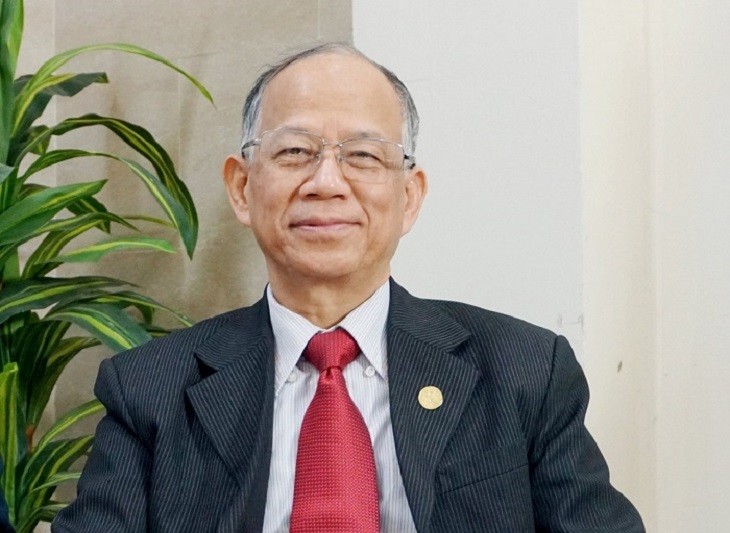(VOVWORLD) - Developing a socialist-oriented market economy is a cornerstone of Vietnam's renewal efforts. Throughout various Communist Party Congresses, this topic has consistently been a focus, necessitating thorough understanding and action. Vietnam has successfully integrated elements of a market economy and reaped undeniable development achievements.
 (Photo: VTV) (Photo: VTV) |
The socialist-oriented market economy is Vietnam's overarching economic model during its transition to socialism. This model represents a modern market economy that is internationally integrated, fully functioning, and adhering to market economy rules. It is managed by a socialist, law-governed state, led by the Communist Party of Vietnam, ensuring a socialist orientation aimed at "rich people, strong country, democracy, equality, civilization," appropriate to each stage of the nation’s development.
Consistent viewpoint
In Vietnam, the concept of a socialist-oriented market economy was officially introduced in the documents of the 9th National Party Congress in April 2001. The Party and State have delivered the long-term policy of developing a multi-sectoral commodity economy operating under a market mechanism with state management and socialist orientation.
The 12th National Party Congress held in January 2016 further developed this concept, emphasizing that Vietnam's socialist-oriented market economy should operate fully and synchronously according to market economy rules and simultaneously ensure a socialist orientation suited to each stage of national development. It’s a modern market economy which is integrating globally and managed by a socialist, law-governed state.
Documents of the 13th National Party Congress in 2021 underline the comprehensive and synchronous improvement of socialist-oriented market economic institutions. Key focuses include unifying and raising awareness of socialist-oriented market economic development, removing bottlenecks, improving the quality of these institutions, building an independent and self-reliant economy, and enhancing the effectiveness of international economic integration.
 Economist Nguyen Min Phong (Photo: congthuong.vn) Economist Nguyen Min Phong (Photo: congthuong.vn) |
Economist Nguyen Minh Phong said: “Vietnam's ultimate goal is a prosperous, strong, democratic, fair, and civilized nation which is also the ultimate goal of the socialist-oriented market economy. Vietnam's market economy adheres to all international requirements, laws, practices, and commitments to serve the people and take the people as both the goal and the driving force for development.”
Undeniable achievements
Following these guidelines, Vietnam's economy has experienced significant changes and development. According to Dr. Nguyen Duc Kien, one of Vietnam's successes has been perfecting and synchronizing institutions to ensure smooth economic operation. Vietnam's legal system, particularly after the introduction of the 2013 Constitution, aligns well with international laws and treaties to which the Vietnamese government has committed. To date, no global organization involved in multilateral and bilateral cooperation has reported that Vietnam has failed to meet its commitments.
Vietnam has also been a frontrunner in achieving goals of hunger eradication and poverty reduction. The world recognizes Vietnam's commitment to social security and the socialist orientation of its market economy through these achievements with no one being left behind.
Dr. Cong Pham, a senior lecturer in economics at Australia’s Deakin University, affirmed that Vietnam has established a market economy. Vietnam joined the World Trade Organization (WTO) in 2007 and has signed numerous multilateral and bilateral free trade agreements (FTAs), including high-standard, new-generation FTAs such as the EU-Vietnam Free Trade Agreement (EVFTA) and the Comprehensive and Progressive Agreement for Trans-Pacific Partnership (CPTTP). These agreements enable Vietnam to integrate deeper into the global economy and promote the adoption of free competitive behaviors.
Another indicator of Vietnam's rapid transition from a centralized economy to a market economy is the rise of private companies and startups.
Dr. Can Van Luc, a member of the National Financial and Monetary Policy Advisory Council, said: "From 2016 to 2021, the private economy accounted for an average of 46% of GDP, and this proportion is expected to reach 55% by 2025. Currently, the private economy employs about 85% of the nation’s total workforce and contributes approximately one-third of the state budget."
Additionally, Vietnam's financial market is experiencing rapid growth, with stock market capitalization surging over time. By August this year, 73 countries, including major economies such as the UK, Canada, Australia, Japan, and South Korea, have recognized Vietnam's market economy status. These recognitions truly reflect the substantial achievements Vietnam has made in its national development and integration into the global economy.